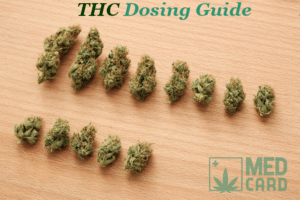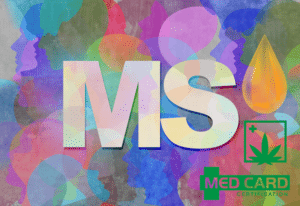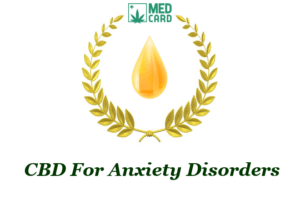

Can CBD oil be used to treat ALS?
In this article, we’re going to talk briefly about the condition and traditional treatments and then discuss how CBD might be used to treat some of the symptoms of Amyotrophic lateral sclerosis and reduce the use of pharmaceuticals.
As medical marijuana finds more and more support amongst the medical community, a growing number of fibromyalgia patients are enjoying the relief from potentially debilitating pain provided by medical marijuana.
What is fibromyalgia? What causes the condition? And why does medical marijuana seem to help fibromyalgia patients? We’ll answer each of these questions starting with an explanation of the condition and potential causes.
A bit about ALS
ALS (amyotrophic lateral sclerosis) is a terrifying disease that generally manifests in those between the ages of 40 and 70 years old. ALS might be due to a genetic trait, but it often strikes people randomly.
ALS damages neurons, severely affecting the nervous system and wreaking havoc in the brain and spinal cord. Eventually, ALS will cause the patient to lose all muscle control and the ability to speak.
In the final stages, most patients are immobilized and unable to breathe. Respiratory failure is generally the final outcome for those suffering from this dreadful affliction.
Conventional Treatments for ALS and Side Effects
There are effective conventional treatments for ALS. However, some of them have significant unpleasant side effects. There are also some non-invasive therapies such as cognitive behavioral therapy, nutritional therapy, physical and occupational therapy, and breathing exercises.
One medication has been used to treat ALS for decades. Riluzole has been the standard treatment for 22 years. However, there is a newer drug on the market called Radicava. Both are known to be effective.
Here is some information on these medications.
Riluzole
Riluzole manages to block the amino acid glutamate. Glutamate transmits messages from the brain to the body. Excessive glutamate is indicated in ALS symptoms. Although this medication is known to prevent seizures and protect brain cells, it also has sedative properties. It may induce appetite loss, fatigue, nausea, weakness, digestive problems, and headaches. Patients are warned to stop its use immediately if they experience depression, fever, or breathing problems.
Radicava
Radicava is generally administered via IV drip to remove free radicals (toxic molecules), and it helps rid the body of pathogens. Patients using this drug may experience rashes, bruising, headaches, and difficulty walking.
Can CBD oil be used to treat ALS symptoms?
Despite the lack of definitive clinical evidence, some research indicates that cannabinoids may slow the progression of ALS. Preclinical trials are showing promise for CBD’s ability to alleviate ALS symptoms.
In a pre-clinical study, a team of researchers observed ALS patients who were self-medicating with cannabis. The research suggested that cannabis significantly relieved their symptoms, including loss of appetite, pain, depression and spasticity.
“Cannabis and amyotrophic lateral sclerosis: hypothetical and practical applications and a call for clinical trials,” an article from the American Journal of Hospice and Palliative Medicine was published in 2010. This research indicated the ability of cannabinoids to increase the life-span of neural cells, delay the onset, and slow the progression of ALS.
Their report concludes:
“Based on the currently available scientific data, it is reasonable to think that cannabis might significantly slow the progression of ALS, potentially extending life expectancy and substantially reducing the overall burden of the disease. There is an overwhelming amount of preclinical and clinical evidence to warrant initiating a multicenter randomized, double-blind, placebo-controlled trial of cannabis as a disease-modifying compound in ALS.”
There is also abundant anecdotal evidence for CBD’s benefits in the treatment of ALS symptoms in particular. In addition to the anecdotal evidence, basic laboratory and animal research indicates the efficacy of CBD in significantly slowing the progression of the affliction and increasing the life-span of ALS patients.
The other benefits of CBD include saliva reduction, appetite stimulation, analgesia (pain relief), bronchodilation, muscle relaxation, and better sleep.
Neurological aspects of medical use of CBD
The US National Library of Medicine National Institutes of Health found that “Pre-clinical evidence largely shows that CBD can produce beneficial effects in MS patients.” (MS is a very similar condition to ALS.)
Studies on CBD and ALS
There are hundreds of studies showing the benefits of CBD oil for general health and pain relief. And dozens of animal studies in the past decade have been focused on the efficacy of cannabinoids in the treatment of ALS.
However, there have been few human clinical studies, making it challenging to accurately interpret the results. However, past animal studies indicated prolonged survival and delayed progression.
An article in ALSToday points out that older research in ALS animal models, shows CBD having anti-inflammatory, antioxidant, and neuroprotective functions.
In one observational study of ALS patients, 10 percent of patients who openly admitted to ingesting cannabis revealed moderate symptom relief, including less pain, drooling, and depression. Some reported a healthier appetite as a result of cannabis consumption as well as reduced spasticity.
Here are two very promising studies about CBD’s efficacy for those battling ALS that might be of particular interest:
The US National Library of Medicine National Institutes of Health summarized, “Preclinical data indicate that cannabis has powerful antioxidative, anti-inflammatory, and neuroprotective effects,” when added to ALS therapies.
Using CBD to treat ALS
There are numerous methods for delivering CBD into your system. Of course, CBD oil, CBD edibles, and CBD vape pens are the most common. However, smoking CBD-rich hemp is another way to receive the benefits of CBD.
It’s a good idea to experiment with various types of delivery systems because ALS manifests in multiple ways.
Smoking CBD hemp flower or vaping CBD oil
The inhalation of CBD brings about almost instant results. However, both smoking hemp CBD flower and vaping are known to create tars and oils that can damage lung tissue. The health issues around smoking are well documented. And although not as well documented, vaping is also not advisable for most sufferers of ALS due to the severe respiratory problems that accompany the disease.
CBD edibles
Eating CBD-infused edibles is a safe and effective way to consume CBD. The effects take longer to kick in than they do with inhaled CBD, but the CBD remains in the patient’s system for a significant length of time.
There are a myriad of types of CBD edibles including gummies, hard candy, baked goods, capsules, etc.,
CBD infused topicals
Creams, ointments, and oils containing CBD are also useful for ALS patients in the treatment of localized pain.
Does CBD produce unwanted side effects?
Despite its many benefits, CBD is not without its side effects. Common side effects include respiratory issues (from smoking and vaping only), lethargy, and drowsiness.
Tars and oils produced from smoking and vaping can irritate compromised lungs and can cause further respiratory distress.
Also, ALS patients already suffer from extreme fatigue. And high doses of CBD have been known to cause lethargy and drowsiness. For this reason, it might be best for some patients to ingest CBD products closer to bedtime.
ALS patients are advised to discuss the use of CBD and the various delivery methods available with a qualified health practitioner.













